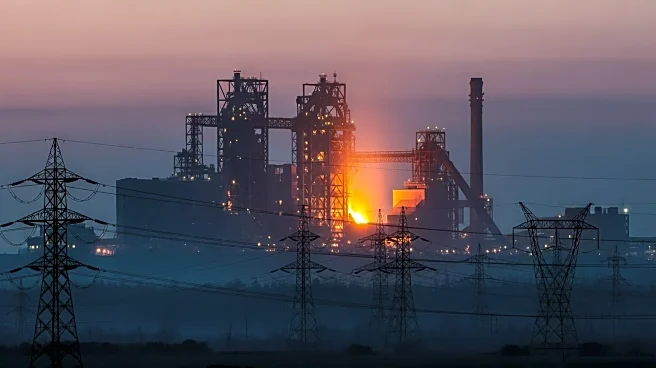Rapid Read • 8 min read
Asset managers in the U.S. are increasingly shifting their focus from oil stocks to renewable energy investments, particularly solar, despite the Trump administration's climate policy stance favoring fossil fuels. This shift marks a reversal from strategies that have dominated since 2021, with hedge funds now showing interest in clean energy due to factors like rising supply from OPEC+ and slowing demand in the U.S. and China. The financial sector's transition towards renewables is further evidenced by a 25% reduction in financing for oil, gas, and coal projects by major U.S. banks, indicating a complex relationship with the energy transition.
AD
The shift towards renewable energy investments by asset managers is significant for the U.S. energy landscape, as it suggests a growing recognition of the economic viability and necessity of clean energy solutions. This transition could lead to increased funding for renewable projects, potentially accelerating the U.S.'s move towards a low-carbon economy. The financial sector's pivot away from fossil fuels, despite political pressures, highlights the resilience of market-driven climate solutions and the potential for long-term economic benefits from renewable energy investments.
As asset managers continue to invest in renewables, the U.S. may see further development in clean energy infrastructure, supported by global investment trends. The ongoing interest in solar and wind energy could lead to increased capacity additions, contributing to the nation's energy transition goals. However, the Trump administration's policies may pose challenges, requiring financial institutions to navigate a complex regulatory environment while pursuing sustainable investments.
The financial sector's shift towards renewables reflects broader economic and environmental trends, including the impact of AI-driven electricity demand and China's green sector recovery. This transition underscores the importance of sustainable investment strategies in mitigating climate change and fostering economic growth. The evolving energy landscape may also influence public policy and societal attitudes towards clean energy, driving further innovation and adoption.
AD
More Stories You Might Enjoy













